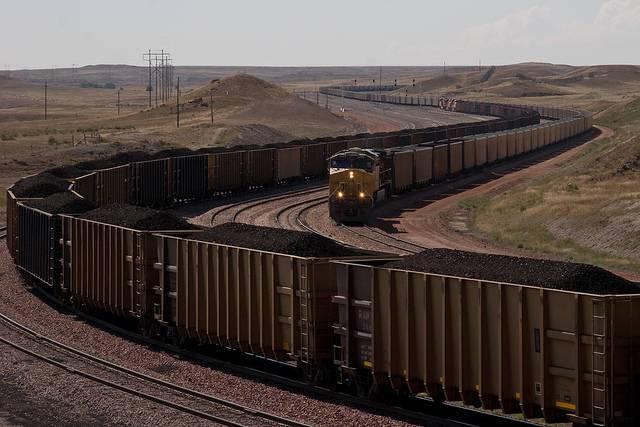
During a recent interview, Jim Barry, a managing director of BlackRock and global head of the investment firm’s Infrastructure and Investment Group, recently declared that “coal is dead.” While he acknowledged that coal will still be part of many countries’ energy portfolios, Barry said any investor who is seeking returns from coal beyond 10 years from now is “gambling very significantly.”
The New York-based investment firm, which describes itself as the world’s largest investment managers based on the $5.1 trillion in assets under its wing, has been bullish about renewables and other clean technology developments for several years.
And largely due to the cheap cost of renewables, Barry and BlackRock are sanguine about these technologies’ future. Barry was also optimistic during the interview on the outlook for electric cars, due to their improved range and the declining cost of battery storage. While talk of “peak oil” has been underway for years, Barry views the oil markets through a different lens, insisting that “peak demand,” not just supply, is a dynamic that investors should not ignore. As consumers embrace electric vehicles, the demand for oil will continue to decline – with the end result a cloudy future for conventional energy companies with large oil reserves on their books.
On the investment front, BlackRock has certainly put its money where its mouth is. The company has managed its own clean energy index fund since 2008, although that fund has largely struggled: the Global Clean Energy ETF had a banner year in 2013, but was flat for the next two years, and its price fell another 16 percent last year. Another one of its funds, the BGF New Energy Fund, has been on an upward trajectory over the course of this decade. BlackRock has also directly invested in clean power projects, as in the purchase two years ago of a 50 percent stake of a 200MW wind power installation in Texas.
Meanwhile, BlackRock has long advised investors that they can no longer ignore the risks that climate change and water scarcity may impose on their portfolios, and has insisted they strive to become more efficient when it comes to resource consumption. “Companies that generate more sales with less carbon, water and waste are deploying resources more efficiently,” wrote the co-authors of a report on climate change impacts last year.
In recent years, the company has suggested strategies for financial institutions on how they can develop tactics to push the companies in which they invest to become more socially responsible. BlackRock has also challenged conventional wisdom about corporate governance issues across its global offices: earlier this year, it warned companies in the United Kingdom to link executive pay to performance, or otherwise they could put themselves at risk of shareholder revolts.
While BlackRock is increasingly warning investors about climate change risk, it is hardly perfect - which, in fairness, is a criticism that can apply to plenty of companies and individual investors. Shortly after the release of its latest climate change advisory in September 2016, Greenpeace accused the company of having investments totaling at least $1.5 billion in various fossil fuel companies across China. Coal may be close to dead, but it still has its foothold on the world’s energy supply – and for many people and companies alike, divestment is often easier said than done.
Image credit: Kimon Berlin/Flickr

Leon Kaye has written for 3p since 2010 and become executive editor in 2018. His previous work includes writing for the Guardian as well as other online and print publications. In addition, he's worked in sales executive roles within technology and financial research companies, as well as for a public relations firm, for which he consulted with one of the globe’s leading sustainability initiatives. Currently living in Central California, he’s traveled to 70-plus countries and has lived and worked in South Korea, the United Arab Emirates and Uruguay.
Leon’s an alum of Fresno State, the University of Maryland, Baltimore County and the University of Southern California's Marshall Business School. He enjoys traveling abroad as well as exploring California’s Central Coast and the Sierra Nevadas.














